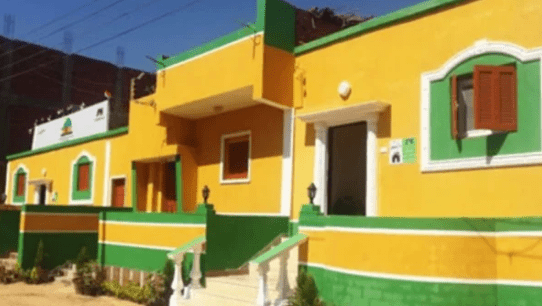BY Hagar Saeed
The Egyptian countryside will undergo major transformations within three years in a new project proposed by President Abdel Fattah El Sisi for that purpose.
Currently in its first phase, the ambitious national project to develop rural areas is hoped to improve quality of life for 1,500 villages by developing electricity networks and sanitation services, and by upgrading government facilities such as schools and hospitals. The project also involves the investment of local resources in each village to create businesses and jobs.
Dr Rashad Abdo, head of the Egyptian Forum for Economic and Strategic studies, told The Egyptian Gazette, “Achieving sustainable economic development in rural communities only comes true with the best investment of the available local resources there.”
For instance, villagers of Shanawan, el-Menoufia Governorate, have for decades been producing hand-made items from palm fronds – one of the heritage industries in the countryside. This cottage industry has not witnessed any upgrade or mechanisation to date.
“This is the only livelihood for the village and it is exhausting as the entire process is by hand,” Abdo said.
“It also brings in low profits because no one has learned how to market their products beyond the immediate vicinity,” Abdo added.
“Yet this could become a lucrative and sustainable economic resource for Shenwan if the government provided them with machinery needed to turn out more, high quality products that would attract buyers from within Egypt and abroad.
“Marketing opportunities could be created through regular exhibitions in different governorates throughout the year,” Abdo added.
Akhmim in the Upper Egyptian governorate of Sohag has for decades been famous for its manual textiles industry.
“This industry can truly bring about real economic development in the village, if the government launched a broad marketing project to advertise the magnificent pieces produced by artisans there and attract buyers from Egypt and abroad,” Abdo said.
He affirmed there should be a clear-cut plan and coordination between the ministries concerned to benefit from the local resources available in each village to launch projects that can contribute significantly to upgrading the quality of life there.
Hussein Abu Saddam, head of the Farmers Syndicate, believes that investment in the agriculture would be key to sustainable economic development in rural Egypt.
Agriculture is the main activity for the inhabitants of rural Egypt, who represent 57 per cent of the overall population. It is a major component of the Egyptian economy, contributing 14 per cent to the country’s gross domestic product (GDP). The agricultural sector accounts for 28 per cent of all jobs, and over 55 per cent of employment in Upper Egypt is agriculture-related, according to a report from the Egyptian Ministry of Agriculture last September.
Agriculture has the greatest potential to utilise Egypt’s human and natural resources to supply the local market with its needs of food, create jobs and attract more domestic and foreign investment,” Abu Saddam told this newspaper, noting that in recent years, the Egyptian government, under the leadership of President Abdel Fattah El Sisi, has been keen on diversifying and expanding the production of crops, particularly fruits and vegetables, for export since these areas have competitive advantage in the international market.
“It is also important to increase investment in small and medium-sized agricultural processing projects. Processing agricultural products increases their added value, provides job opportunities and prolongs shelf life,” Abu Saddam added.






Discussion about this post